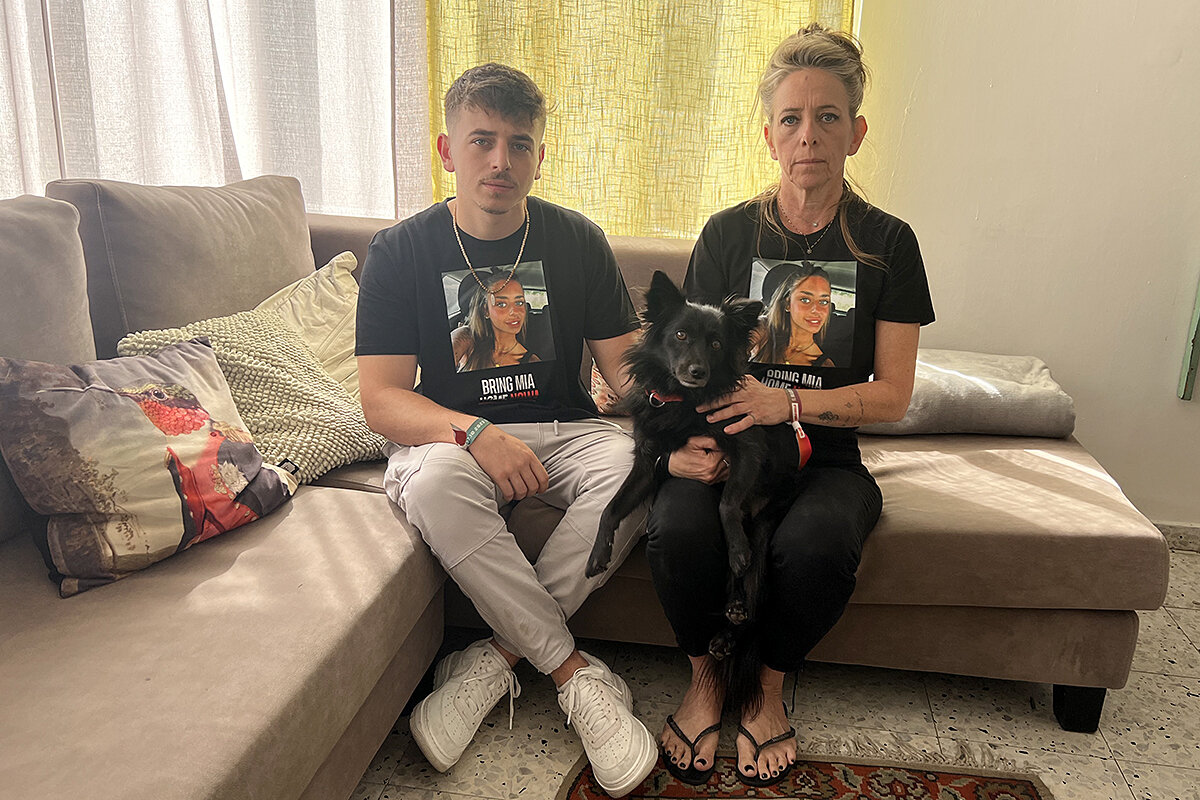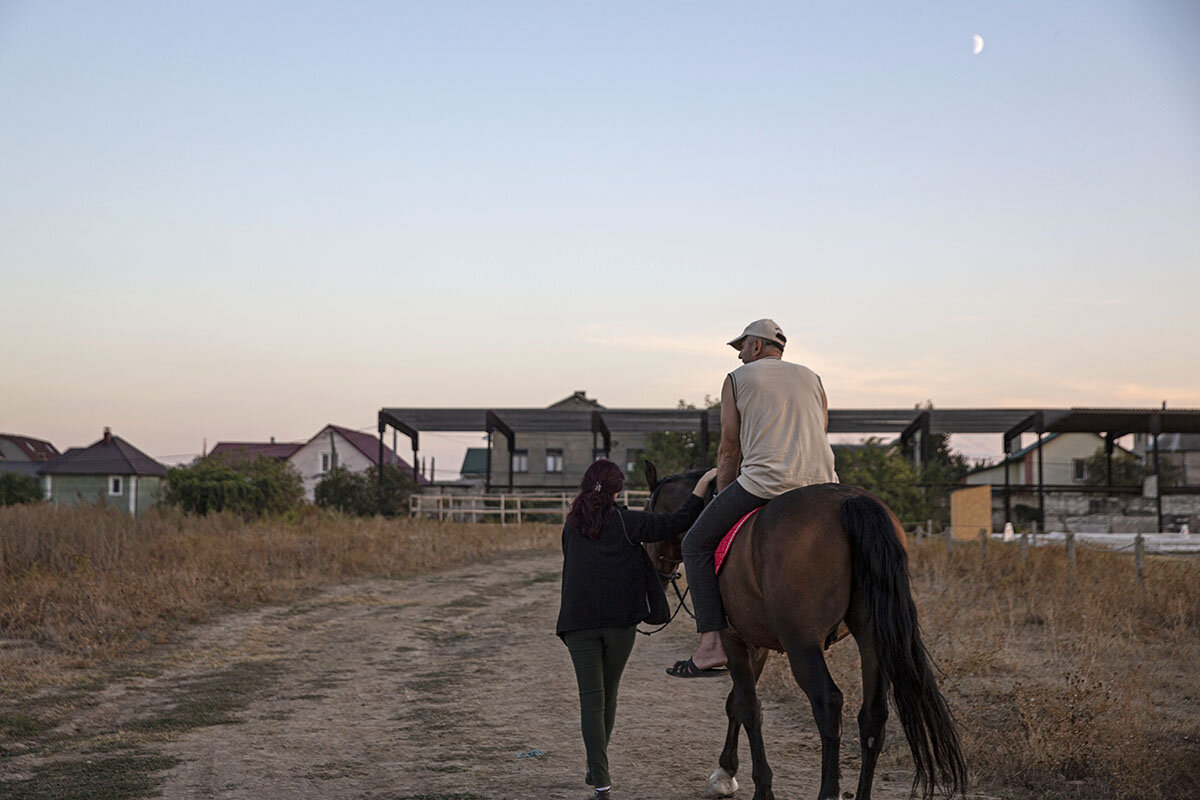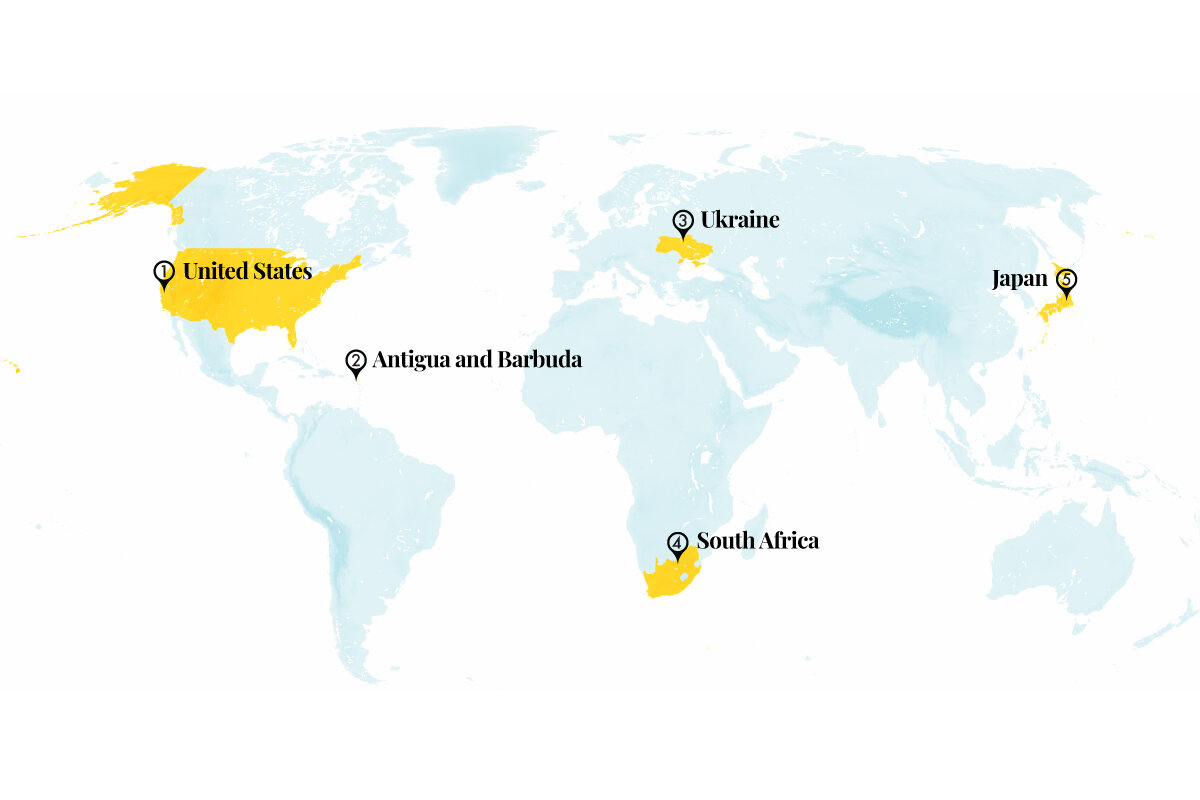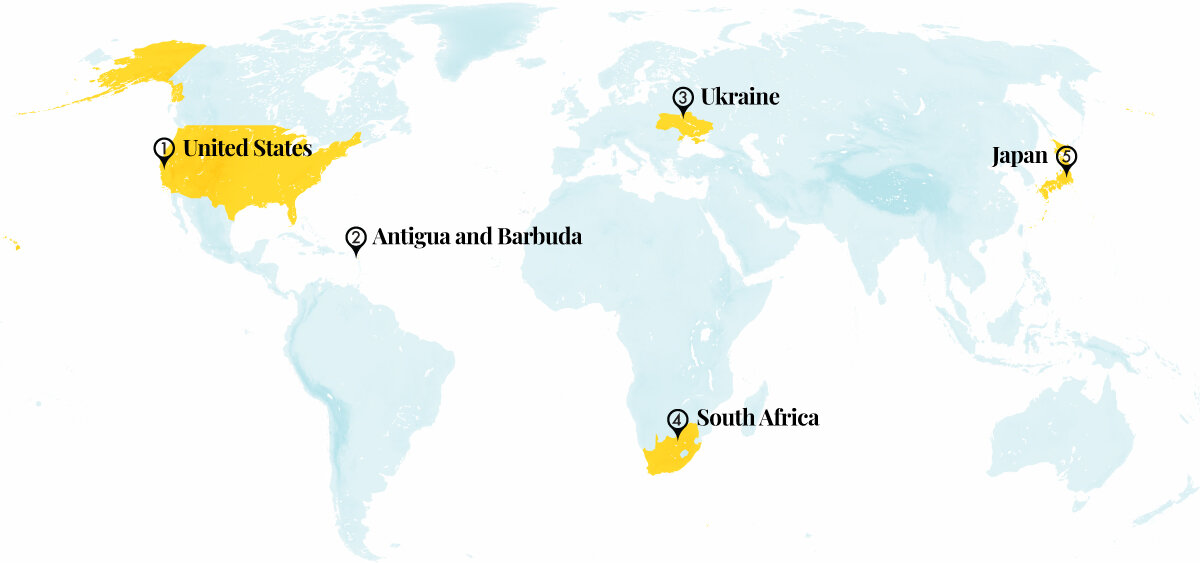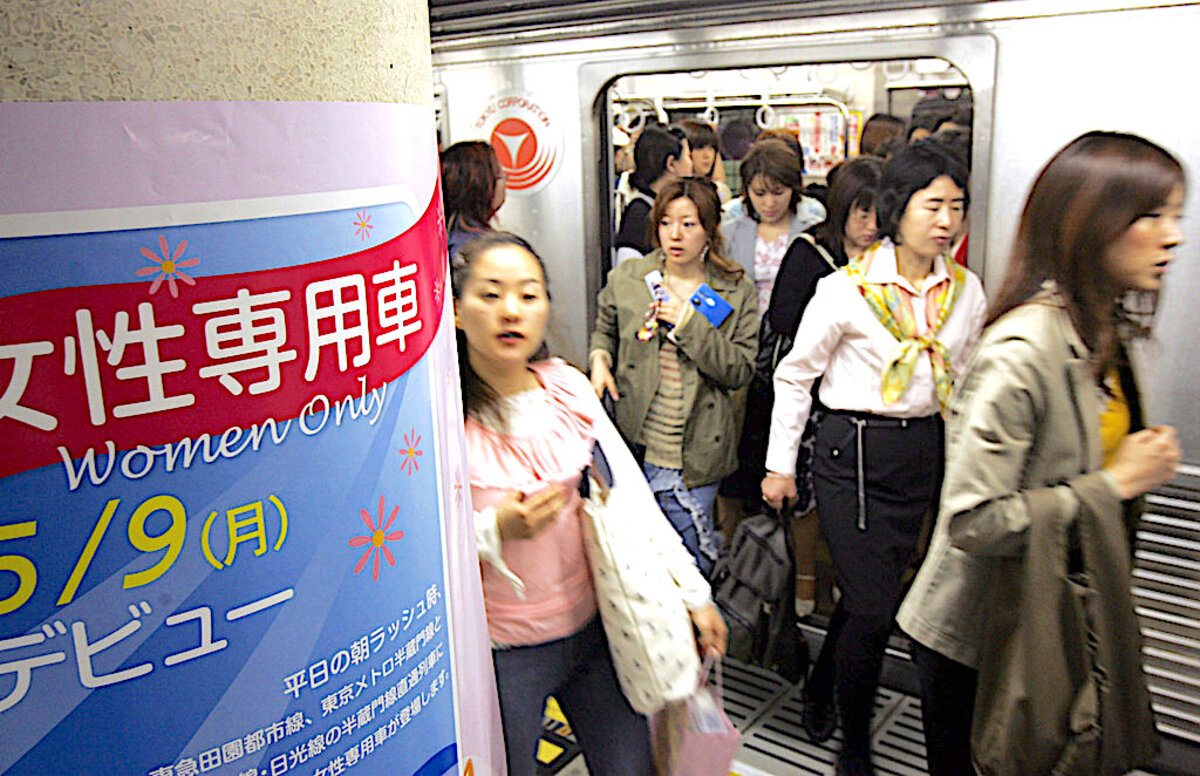In a war where brutality seems to be in flood tide, Howard’s story is about a mother seeking an eddy in the inhumanity. Her daughter was taken in the Hamas attack. She knows the days since have put her at the center of a complicated crisis that has divided the world. But like so many caught in the middle, she just wants her child to be safe.

Why is Christian Science in our name?
Our name is about honesty. The Monitor is owned by The Christian Science Church, and we’ve always been transparent about that.
The Church publishes the Monitor because it sees good journalism as vital to progress in the world. Since 1908, we’ve aimed “to injure no man, but to bless all mankind,” as our founder, Mary Baker Eddy, put it.
Here, you’ll find award-winning journalism not driven by commercial influences – a news organization that takes seriously its mission to uplift the world by seeking solutions and finding reasons for credible hope.
Explore values journalism About usMonitor Daily Podcast
- Follow us:
- Apple Podcasts
- Spotify
- RSS Feed
- Download
 Mark Sappenfield
Mark Sappenfield
Howard LaFranchi’s moving story today of the family of a kidnapped Israeli is well worth a read. But Howard tells me there’s also a story behind the story worth sharing.
Howard’s driver that day was a Palestinian Israeli. About a half-hour into the interview, the driver called Howard from the car, sounding nervous. A man had come out of the building to confront him: Was he Hamas?
The man soon entered the apartment, agitated and demanding something in Hebrew (which Howard does not speak). The family Howard was interviewing calmed the man, and he left. When Howard returned to the car after the interview, the driver proudly showed him a cup of coffee. The man who not long before had thought he might be a Hamas member had brought it. A small peace offering in a land yearning for them.
Already a subscriber? Log in
Help fund Monitor journalism for $11/ month
Monitor journalism changes lives because we open that too-small box that most people think they live in. We believe news can and should expand a sense of identity and possibility beyond narrow conventional expectations.
Our work isn't possible without your support.
Today’s stories
And why we wrote them
( 7 min. read )
( 5 min. read )
In Gaza, meanwhile, simply making bread has become a feat of ingenuity. Taking a shower is a dream. Children can now tell the difference between the sounds of artillery fire and rocket fire. They ask adults: What will happen to us? Will we stay alive? Says one mother: “I cannot answer.”
( 4 min. read )
Supreme Court justices had no code of ethics, until now. The new document lays out no penalties, and most of the rules will be enforced ... by the justices themselves. Yet with public confidence in the court at an all-time low, doing anything is a positive step, experts say.
( 5 min. read )
The grief and pain that Ukrainian soldiers can suffer on the front line is sometimes beyond the reach of doctors and therapists. Horses, though, can help.
Points of Progress
( 5 min. read )
In our weekly roundup of progress around the world, we have carbon accountability in California, a reawakened island in the Caribbean, and good news for the white rhino. Night schools in Japan are also expanding opportunity.
The Monitor's View
( 2 min. read )
Sometimes a simple idea is all it takes. In 2000, Mexico City added female-only train cars on its subway system. The concept soon spread – to Tokyo, Lahore, and Rio de Janeiro. Now that rethinking of how public transport can meet the needs of female passengers is at the heart of other shifts in urban design. What started as an attempt to shield girls and women from sexual abuse is shaping remedies to many social and economic problems.
Public transportation consciously designed around women, argues Kalpana Viswanath, an urban planner based in Haryana, India, is essential to building communities. In much of the world, women’s daily movements are based on tending to the needs of their families. “If you put the care economy center stage [in urban design], you also allow men to be better caregivers,” Dr. Viswanath told the authors of a newly published collection of interviews with international women who are rethinking urban environments. “It is the work of care that makes us human. We should foreground that in any infrastructure, service, amenity, or public space that we design and plan in our cities.”
The benefits of making public transportation female-friendly are measurable. The average rate of female literacy in the Middle East and North Africa is 88%, for example, yet women make up just 19% of the regional labor force. India faces similar discrepancies. Women there contribute to just 17% of the gross domestic product despite rising female enrollment in higher education. If women’s economic participation were equal to that of men, the Organization for Economic Cooperation and Development estimates, it would add $28 trillion to the global economy.
Solving that discrepancy can sometimes be simple. In India, for example, the state of Karnataka recently made bus travel free for female passengers to boost employment and school attendance. A new World Bank study of gender-based transportation reforms in Cairo, Beirut, and Amman showed that such measures can have a “robust” impact on female economic participation.
But they also have a more complex social benefit. All-female subway cars, for instance, have helped women in Japan find freedom from the fear of sexual harassment during their daily commutes. In more restrictive, male-dominated societies, meanwhile, orienting public transportation toward women has become a focal point of equal rights.
“The cultural change in mobility ... is a moment of opportunity,” Janet Sanz, former deputy mayor of Barcelona, Spain, told the Local Governments for Sustainability blog last year. “What we do now is to prioritize people.”
A Christian Science Perspective
Each weekday, the Monitor includes one clearly labeled religious article offering spiritual insight on contemporary issues, including the news. The publication – in its various forms – is produced for anyone who cares about the progress of the human endeavor around the world and seeks news reported with compassion, intelligence, and an essentially constructive lens. For many, that caring has religious roots. For many, it does not. The Monitor has always embraced both audiences. The Monitor is owned by a church – The First Church of Christ, Scientist, in Boston – whose founder was concerned with both the state of the world and the quality of available news.
( 3 min. read )
There’s kindness, warmth, and healing inspiration to be found at Christian Science services – including the annual Thanksgiving service.
Viewfinder
Palestinian children play during the Eid al-Adha holiday, in Gaza City, June 6, 2025.

A look ahead
We’re grateful you joined us today. Tomorrow, we’ll take a look at the question that determines most presidential elections, no matter what else is going on: How is the president doing on the economy? We visit one key swing county – and get a more nuanced answer than one might expect. People are feeling relatively upbeat, but there’s plenty of blame for President Joe Biden, too.
In the coming days, I’ll also talk to our correspondent Taylor Luck on the remarkable reporting that he and Ghada Abdulfattah have done from the West Bank and Gaza, respectively. So stay tuned for that.



